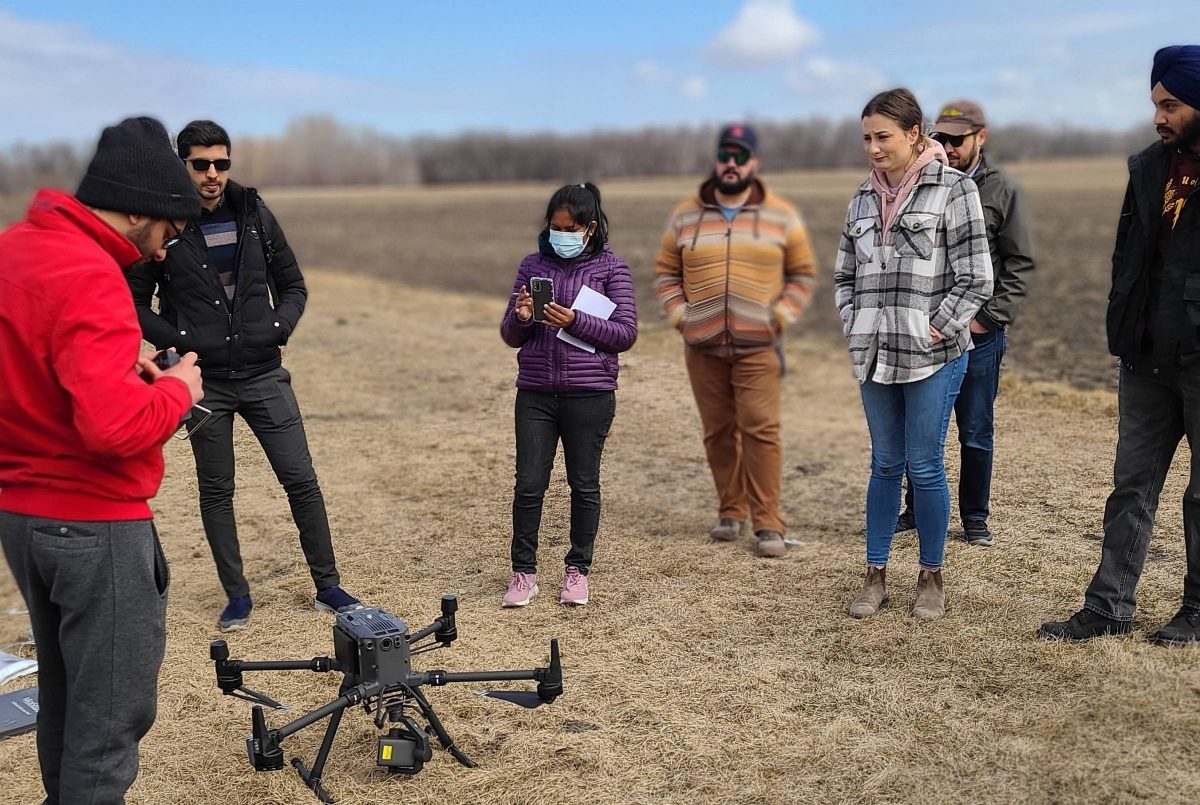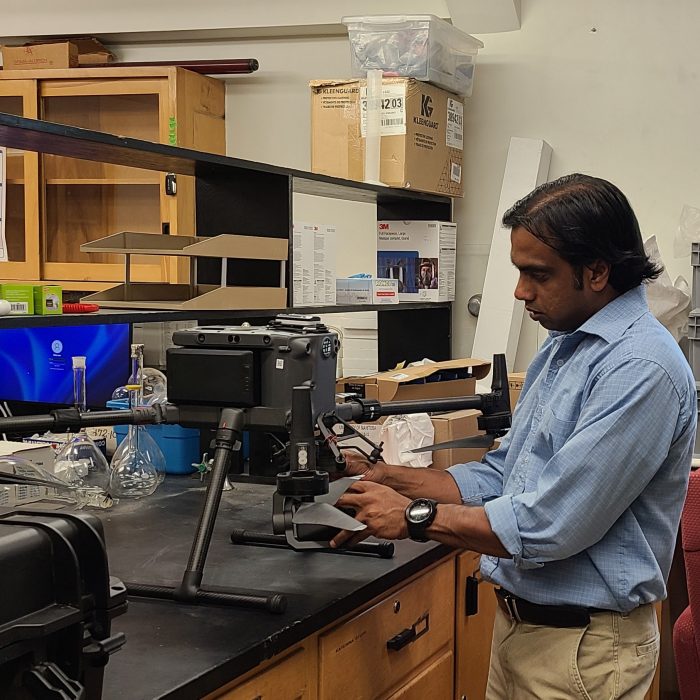
UM researchers test agricultural drone in the feild
UM led research to advance agricultural innovation receives federal funding
Robert Gulden team seeks to provide remote sensing tools for more effective weed management
A team of UM researchers working to address herbicide resistance in weeds that affect crop plant growth has received nearly $1.5 million over five years in federal funding support. Led by Dr. Robert Gulden, Professor and Acting Associate Head of the UM Department of Plant Science, the project seeks to create remote sensing tools for more effective weed management while also using less herbicide in food production.
This new funding from the Natural Sciences and Engineering Research Council of Canada is part of the Alliance grants program which encourages cross-disciplinary partnerships across private and public sectors. The project is also supported with partner funding from Western Grains Research Foundation, Manitoba Pulse & Soybean Growers, Manitoba Canola Growers Association, and Manitoba Crop Alliance.

Dilshan Benaragama, Manitoba Crop Protection Chair in Weed Management
Entitled Remote sensing weed-crop interference and data-driven weed management decision making tools this project includes co-investigators Dr. Nasem Badreldin, Soil Science, and Dr. Dilshan Benaragama, Plant Science. They are also joined by collaborator Dr. Steve Shirtliffe, University of Saskatchewan.
Benaragama was named Manitoba Crop Protection Chair in Weed Management in 2022, and brings 10 years of experience in weed management, with more recent experience in drone-based remote sensing. Badreldin and Shirtliffe are experts in digital image acquisition and neural networks.
“We are proud to partner UM’s leadership in the area of weed science with support from the top grower organizations,” says Dr. Martin Scanlon, Dean, Faculty of Agricultural and Food Sciences. “Through collaborative research, we will be able to equip producers with the tools to improve herbicide stewardship, monitor weed resistance and grow the crops that meet the demands of our export markets.”
The herbicide paradox
Nearly all the vegetables, cooking oil and grains we eat are protected with herbicides to control weeds. Weeds are the most persistent and damaging threat to agriculture in Canada, however the more herbicide we use, the more weeds evolve and adapt.
Today herbicide-resistant weeds infest more than 23 million acres of farmland across the Canadian Prairies, costing producers an estimated $530 million annually. To slow the rate of herbicide resistance a reduction in herbicide use is needed, but this can only be achieved by knowing precisely when, where and what kinds of weeds will appear as well as their impact on the crop.
The researchers seek to achieve precision-herbicide application using new remote sensing drones with AI capable of identifying weed species and estimating their effect on crop yield throughout the growing season. This data will feed into an algorithm governing GPS-guided equipment to apply herbicides in a site-specific manner.
This technology will also be able to detect herbicide-resistant weeds as they develop, allowing for a rapid response by producers, and this is crucial to combating their spread. This revolutionary approach will reduce the pesticide load on the environment while meeting the needs for Canada’s food security and global food production goals.
“By mobilizing recent technological advances in partnership with public and private sector producers, this project has the potential to transform agricultural practices across the globe,” says Dr. Mario Pinto, Vice-President (Research & International). “I congratulate the researchers on securing this highly competitive federal funding, which will also support the training of 22 highly qualified personnel to lead the next generation of agricultural innovators in Canada.”

Research at the University of Manitoba is partially supported by funding from the Government of Canada Research Support Fund.






